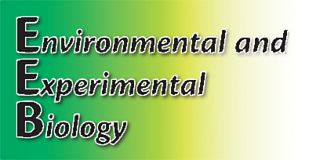
On-line: ISSN 2255–9582

| Faculty of Biology, University of Latvia | ||||||

|
Hard copy: ISSN 1691–8088
On-line: ISSN 2255–9582 Acta Univ Latv (2007) 723: 181–190
|
|||||

|
About the Journal | Retractions | Open Access | Author Guidlines | Current Issue | Archive |
|
Environmental and Experimental Biology |
Acta Univ Latv (2007) 723: 181–190 |
Human adult (autologous) stem cells which are capable of self-renewal and differentiation into other cell types, can be isolated from various tissue and are a promising source for cell therapy, since there are no ethical and rejection problems as in the case of embryonic stem cells. The human body contains a great amount of adipose tissue which consists also of several mezenchymal stem cell populations. According to the existing data Transforming Growth Factor β (TGFβ) is one of the molecules involved in MSC differentiation. The aim of this work was to study the capablility of human adipose-derived precursor cells to differentiate into other cell types and to study the effect of various cell media on the expression of TGFβ in adipoze-derived precursor cells. Here we show that in serum-free medium the morphology of cells differs and the expression level of TGFβ is significantly higher than in serum-supplemented media. Our work also shows that cell populations isolated from human adipose tissue can differentiate not only into mezenchymal lineage cells but also into neuronal lineage cells, prooving the plasticity of adipose derived cells. We conclude that cell populations isolated from human adipose tissue contain a number of precursor cells with characteristic features of stem cells – ability to differentiate into more than one cell type. Cell cultivation medium affects population growth and morphology. Cells in serum-containing medium grow faster and develop a monolayer, while cells in serum-free medium grow slower and tend to form spheres. TGFβ expression is significantly higher in cells grown in serum-free medium which is more suitable for maintenance of cells than for promoting rapid growth.